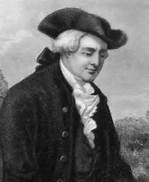In my recent release, TheCumberland Bride, I reference some unrest taking place in the Ohio Valley
at the same time, related to a tax that had been levied on the sale of whiskey.
Farmers in the westernmost states had discovered that due to the
high cost of shipping things back east (there were no wagon roads west of the
Appalachian Mountains, yet, so they had to use pack horses or mules), they
could make more money selling whiskey (distilled from grain grown west of the mountains)
than from shipping the grain itself east. Alexander Hamilton, looking for ways to fund the newly formed American government and to defray the lingering cost of the war for independence from
Britain, decided to levy a tax on the whiskey.
President Washington felt the supremacy of the United States
government, and the Constitution itself, was at stake, and so in the face of
some vigorous protests, rode out to western Pennsylvania himself with a strong
show of force. General Daniel Morgan, the tough, hard-bitten hero of the Battle
of Cowpens almost 14 years before (during the Southern Campaign of the
Revolution), was chosen to lead one wing of that army, and the Whiskey
Rebellion subsided without a shot being fired. (Interestingly, one member of
his force, which stayed in western Pennsylvania through 1795, was Meriwether
Lewis.)
Several of those who had led the violence were arrested, but
only two men were tried and sentenced to hangings. Washington eventually
pardoned even those two. He was apparently satisfied that he’d upheld the
Constitution, but many farmers still felt the government had looked out more
for its own interests than those of its citizens.
The excise tax remained difficult to collect, and many just
plain refused to pay it. Hamilton was disappointed that his plan to help fund
the new government had failed. Many feel that the events surrounding the
Whiskey Rebellion directly led to the formation of two political parties, the
Federalists who believed more power should lie with the government to protect
and serve, and the Republicans who believed more power should lie with the
people. A few years later, when Jefferson was elected president, he repealed
the Whiskey Tax, despite the popular view of the day that Washington’s actions
against the Whiskey Rebellion were necessary and successful.
Has anything really changed since then? It’s an interesting
commentary on the history of our country’s politics, to be sure.




